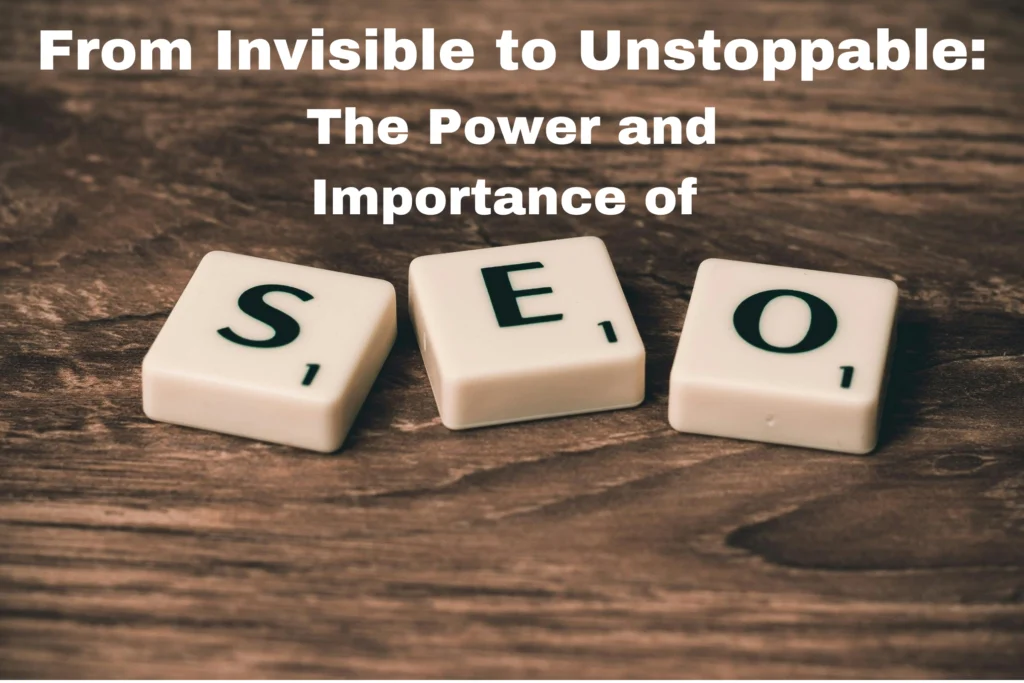
What is SEO and Why is It Important?
In today’s digital age, having an online presence is essential for any business or individual seeking to make an impact. But simply having a website isn’t enough; it’s crucial to ensure that your site is visible to your target audience. This is where Search Engine Optimization (SEO) comes into play. Understanding SEO and its importance can be the key to achieving online success.
What is SEO?
Search Engine Optimization, or SEO, is a set of practices designed to improve a website’s visibility and ranking on search engine results pages (SERPs). When users search for information, products, or services online, search engines like Google, Bing, or Yahoo provide a list of relevant results. SEO aims to make your website more attractive to these search engines so that it ranks higher in the search results.
SEO involves a combination of technical, on-page, and off-page strategies. Here’s a breakdown:
- Technical SEO: This focuses on the backend of your website, ensuring that it is technically sound. It includes optimizing site speed, mobile-friendliness, indexing, and site architecture to improve user experience and search engine crawlability.
- On-Page SEO: This involves optimizing the content and HTML source code of individual pages. Key elements include keyword optimization, meta descriptions, title tags, header tags, and internal linking.
- Off-Page SEO: This refers to actions taken outside of your website to improve its authority and relevance. This often involves building backlinks from reputable sites, social media engagement, and other external factors.
Why is SEO Important?
- Increased Visibility and Traffic: The primary goal of SEO is to increase your website’s visibility on search engines. Higher rankings in search results mean more visibility to potential visitors. As a result, your site is likely to receive more organic (non-paid) traffic, which can lead to higher engagement and conversions.
- Credibility and Trust: Websites that rank higher in search results are often perceived as more credible and trustworthy by users. A well-optimized site can build your brand’s reputation and authority in your industry, fostering trust with potential customers.
- Cost-Effective Marketing: Compared to other forms of online marketing, such as pay-per-click (PPC) advertising, SEO can be more cost-effective in the long run. While SEO requires an initial investment in terms of time and resources, it can lead to sustainable traffic and long-term results without the ongoing costs of paid ads.
- Better User Experience: SEO isn’t just about search engines; it’s also about improving the overall user experience. Optimizing your site for speed, mobile devices, and easy navigation ensures that users have a positive experience, which can reduce bounce rates and increase engagement.
- Competitive Advantage: In a crowded digital marketplace, standing out is crucial. Effective SEO can give you a competitive edge by helping you rank higher than your competitors. It allows you to capture a larger share of the market and attract potential customers who might otherwise choose a competitor.
- Measurable Results: SEO efforts are trackable and measurable. Tools like Google Analytics provide insights into your website’s performance, allowing you to see how your SEO strategies are impacting traffic, rankings, and conversions. This data helps you refine your strategies and achieve better results over time.
- Long-Term Benefits: Unlike some marketing tactics that offer short-term results, SEO provides long-term benefits. Once your website achieves a high ranking, it can maintain that position with ongoing optimization and content updates, continuing to drive traffic and generate leads over time.